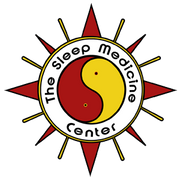4 Frequently Asked Questions About Narcolepsy

Narcolepsy is an often-misunderstood neurological condition. Characterized by episodes of excessive sleepiness, narcolepsy may impact multiple areas of a person’s life and could interfere with daily tasks if proper treatment is not sought. The following questions and answers provide insight into this condition.
Common Narcolepsy Questions Answered
Why Does It Happen?
Rapid eye movement (REM) is an integral component of the sleep-wake cycle. A person without narcolepsy often enters into the REM stage just 15 minutes after falling asleep, as opposed to about 60 to 90 minutes after, which occurs in a normal sleep cycle. This results in several disruptions, some of which can be dangerous depending on the situation.
What Are Some Symptoms?
 Along with excessive daytime sleepiness, people with narcolepsy also experience cataplexy or a loss of control over the muscles. During an episode, a person usually retains full consciousness but is unable to command movement in the limbs. Movement usually returns once the episode has passed. Insomnia, hallucinations, and sleep paralysis also accompany narcolepsy.
Along with excessive daytime sleepiness, people with narcolepsy also experience cataplexy or a loss of control over the muscles. During an episode, a person usually retains full consciousness but is unable to command movement in the limbs. Movement usually returns once the episode has passed. Insomnia, hallucinations, and sleep paralysis also accompany narcolepsy.
How is It Diagnosed?
All sleeping problems must be assessed by a doctor to receive an accurate diagnosis. A sleep study will measure a person’s movements during sleep, while also assessing their brain and muscle activity. This can also help determine when REM sleep is occurring. A multiple sleep latency test, which involves taking a series of naps to determine how quickly a person falls asleep.
Are There Treatments Available?
There are several medications used to treat narcolepsy. Stimulants are provided to boost the central nervous system, which helps reduce fatigue during the day. Some antidepressants have also proven successful. Your doctor may also recommend taking naps throughout the day, as well as avoiding smoking or caffeine consumption.
Glacier Headache & Sleep Medicine in Flathead County, MT, specializes in treating sleep disorders like narcolepsy. They conduct sleep studies using state-of-the-art equipment, which allows them to make a swift and efficient diagnose. They’re equipped to treat a wide range of sleep disorders, including sleep apnea, restless leg syndrome, insomnia, as well as childhood sleep issues. Over the years, they’ve conducted more than 10,000 sleep studies and they strive to create a calm and relaxed office environment for all patients. Call (406) 752-1729 today to schedule an appointment. You can also visit the website for more information on the sleep disorders they treat.
About the Business
Have a question? Ask the experts!
Send your question

